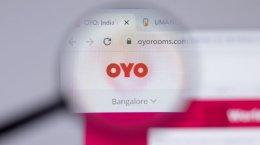The Indian Depository Receipts (IDR) of UK’s Standard Chartered Bank hit its lowest level since listing on the Indian bourses after market regulator SEBI announced new norms for redemption of IDRs into shares. The IDRs hit the lower price circuit for the day shrinking 20% to Rs 91.75 during intra-day trade on Monday, before partly making up to close the day at Rs 94.55, down 17.53%.
The trigger for the sharp reaction on the IDRs is the clamp on redemption of IDRs into shares imposed by SEBI. SEBI said after completion of one year cooling period from the date of issue of IDRs, redemption shall be permitted only if the IDRs are infrequently traded on the Indian stock exchanges.
It has said the IDR’s would be considered as ‘infrequently traded’ if the annualized trading turnover in IDRs during the six calendar months immediately preceding the month of redemption is less than 5% of the listed IDRs. The IDR issuer will need to test the frequency of trading on a half yearly basis ending on June and December of every year.
In the case of Standard Chartered—that listed in June last year and could have become eligible for its shareholders to redeem the IDRs in a few days from now- this annualized trading turnover is estimated to be around half of its listed IDRs, making its investors ineligible for redemptions.
“The extant regulatory frame work does not permit fungibility but only redemption. Therefore, allowing redemption freely in the absence of two way fungibility could result in reduction of number of IDRs listed, thereby impacting its liquidity in the domestic market,†SEBI said.
One reason for the sharp reaction on the IDRs is investors expectations that they will be able to make money through arbitrage between IDR and Standard Chartered’s shares on the London Stock Exchange or the Hong Kong exchange, where it also trades. It also means IDR investors do not get any voting rights in the UK-based bank that is possible only after redeeming IDRs.
When StanChart became the first MNC to issue IDRs, it was welcomed with a huge fanfare as Indian capital market joining the league of US and European exchanges, which typically account for bulk of such international depository receipts through ADRs and GDRs respectively.
The new norms and reaction of investors raises a question as to whether Standard Chartered PLC issued IDRs in haste even before SEBI had clarified on key matters for investor such as redemption. While the IDR issue disclosures had said that there is a one year period before the IDRs can be redeemed, it had also indicated the rider that it would be further subject to “…..RBI approval on a case-by-case basis.†So the investors were informed of the risk of any further controls over redemption.
But a bigger question is whether the new norms or rather clarifications related to redemption will become a deterrent for other multinational firms to issue IDRs.
As things stand, IDRs become more attractive for investors only if it’s illiquid on Indian bourses. However the basic objective of floating IDRs for MNCs remain undiluted. Get higher visibility in an emerging market.
However, institutional investors who were looking for a price arbitrage may not be too excited about new IDRs as they can’t be possibly sure of meeting the ‘illiquid’ criteria for their IDRs to become eligible for redemption.
This can certainly be a blow for MNCs who were hoping to float IDRs. While technically they can issue IDRs even if HNIs and other institutional investors are not investing, it would make it a tricky bet as retail shareholders by themselves may not be able to pull such IDRs.
On the flip side, the new regulatory norm brings clarity on the subject which can be used by other prospective IDR issuers to attract a different set of investors who are not necessarily swayed by the arbitrage aspect.
Standard Chartered PLC was trading at 1,587 pence at mid-day trade on London Stock Exchange on Monday. Given that 1 share of Standard Chartered is equal to 10 underlying IDRs, in effect it works out to be trading in its home market for around Rs 116 a share. Ironically, it now makes StanChart IDR ripe arbitrage opportunity!





